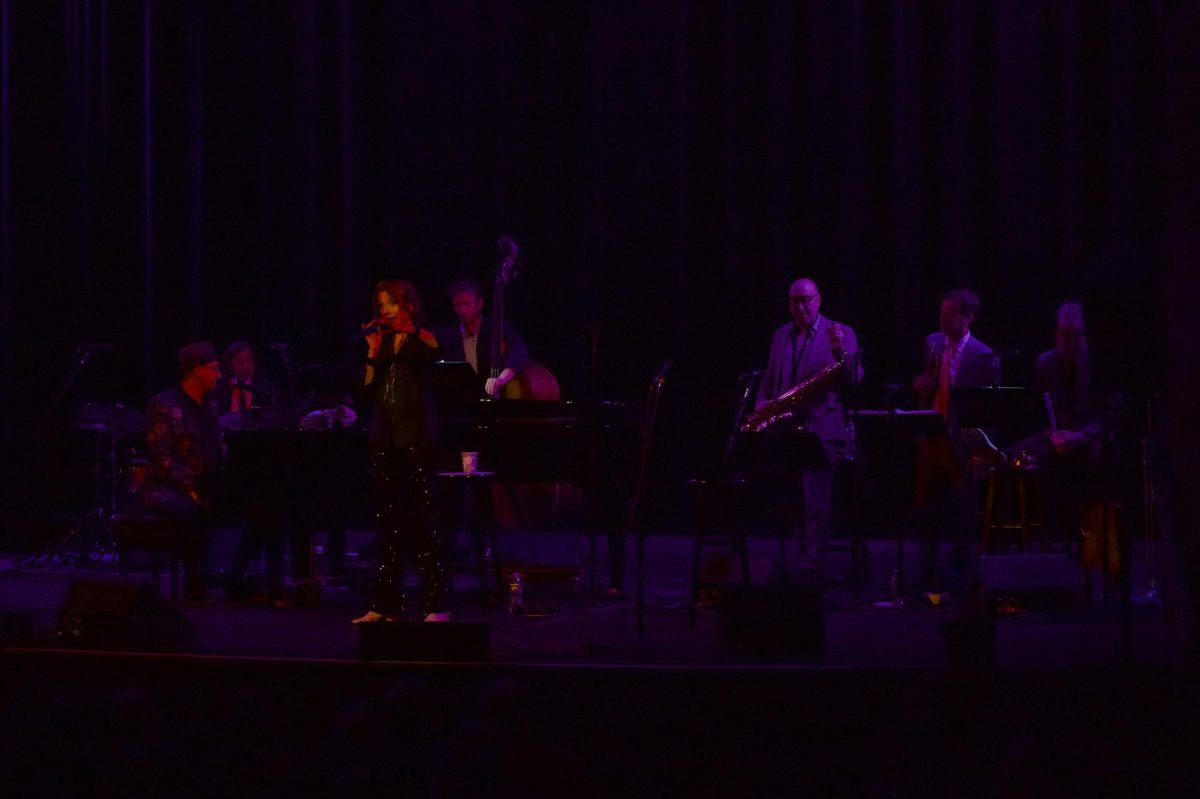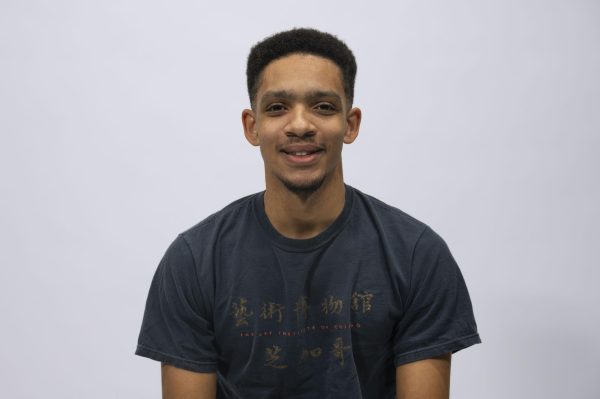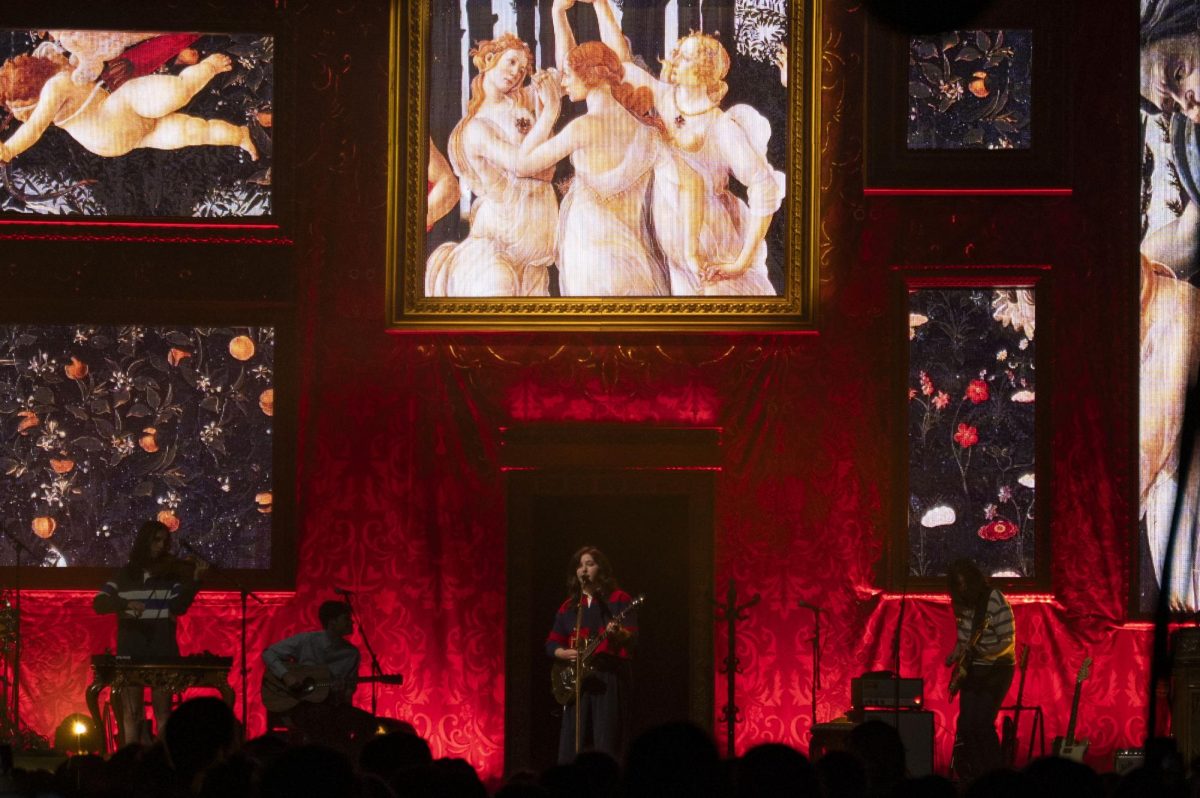The Hot Sardines hit the Berklee Performance Center with a dazzling performance March 8, blending the lively spirit of Roaring ‘20s jazz with modern flourish. Their signature sound, something straight out of a New York speakeasy with a flash of New Orleans-style horns, was on full display.
The room was cast in a violet hue as The Hot Sardines took the stage and began their first song, “When I Get Low I Get High.” The song, originally sung by Ella Fitzgerald, allowed lead vocalist Elizabeth Bougerol to take charge. Bougerol turned the venue into a time machine, bringing the audience back in time with reimagined 20th-century jazz. Pianist Evan Palazzo provided swing melodies with virtuosic energy as the group showcased its passion for reintroducing a genre that typically fails to appeal to younger audiences.
From the velvety tones of “Petite Fleur” to explosive pieces like “Big Chief,” The Hot Sardines were able to shift smoothly between lounge jazz and high swing vibes. Accompanied by a standout tap dancer, AC Lincoln, the band was able to add additional audio and visual layers to the concert.
However, as the band delivered excitement on stage, the reaction of the crowd was restrained. The audience, while clearly engaged and entertained, responded with minimal cheering, soft grins and polite claps. For a song like “Petite Fleur,” the calm demeanor was fitting. But during more explosive numbers like “Big Chief,” there was little visible reaction beyond the light bobbing of heads, and when the song ended, the fiery piece was met with firm applause.
Possibly looking to encourage some movement, the band transitioned into a more swing-oriented song, “A Spoonful of Sugar.” Choosing to adopt a song from “Mary Poppins” is a bold choice — one that could have easily turned cheesy — but The Hot Sardines handled it with grace.
Palazzo’s piano riffs turned the potential gimmick into arguably the most joyous part of the night. His precision on the keys lent him the ability to lean into the more complex parts of the song and elevate the tune while maintaining the bubbly nature. Even the audience reflected this, beaming at the harmonies The Hot Sardines produced.
Determined to continue delivering variety to the audience, the band performed a rendition of “Dark Eyes,” a brooding folk song with Russian roots. The Hot Sardines sharpened the tune by introducing modern jazz elements, drawing out the song and allowing each member to showcase their talent. Notably, Jason Prover on the trumpet delivered a borderline cinematic experience through raw intensity. All of this was only enhanced by Bougerol’s elegant vocals. It was as this song came to an end that the audience erupted with the energy the band was looking for.
The band’s passion and musical talent were apparent through its modern interpretation of jazz, showing its commitment to preserving jazz as a musical genre rather than relegating it to relic status. From tap dancing to vibrant horns and rich piano melodies, The Hot Sardines provided a captivating show capable of drawing in anyone who was open to it.
The Hot Sardines are looking to carve a path in the modern era for jazz, and at the Berklee Performance Center, they did so relatively successfully. For jazz to truly thrive in the city of Boston, the genre needs more shows like this, and the band needs the entire venue to match its energy.











